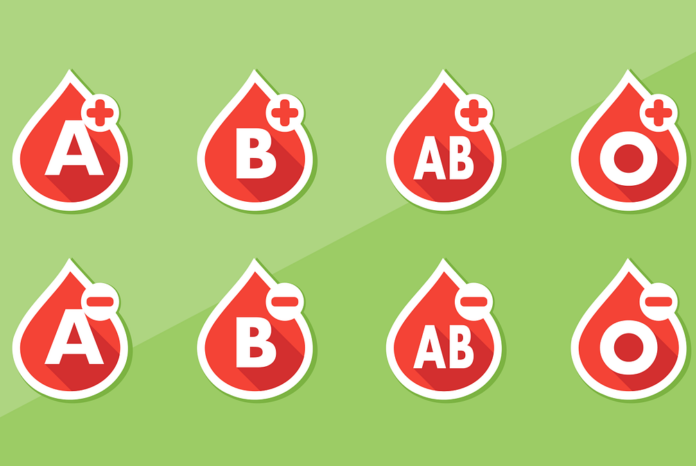Last Updated on April 19, 2021
Believe it or not, your blood type matters – and not just because you might need to give blood or receive a blood transfusion someday.
The blood type is determined by the absence or presence of A and B antigens, and the presence or absence of the Rh factor, a protein.
There are eight different blood types according to The American Red Cross – A+, A-, B+, B-, AB+, AB-, O+, or O-, and the truth is that the antigens can do much more than determining your blood type – they can increase the risk of you developing certain health problems.
If you know about them, you can always do your best to prevent them. So here are nine secrets your blood type can reveal about you.
1. People with types A, B, AB are more prone to heart disease
If your blood type is A, B, or AB, we have bad news. People with these blood types are 25 to 30% more likely to suffer from heart disease.
This happens because they tend to present a higher count of blood-clotting proteins, which puts them at a greater risk of dying from a heart-related condition when compared to type O’s.
2. People with type O are at a lower risk of developing blood cloths
Like we have explained before, people with O blood type seem to have less of the proteins that cause blood to coagulate. Therefore, they are less likely to develop blood clothes.
However, this does not mean that people with this blood type are immune – it just means that the risk is higher for people with other blood types.
3. Fertility problems are more likely on people with O blood type
A study has shown that women with O blood type may have a smaller ovarian reserve due to the presence of a follicle-stimulating hormone.
This means that they will have fewer egg cells ready to be fertilized, which can become a problem if they are trying to conceive. Fortunately, nowadays, you can always seek fertility treatments if this issue is affecting your life.
4. Increased risk of gastric cancer for Non-O blood types
The same study that has concluded that types A, B, or AB are more likely to suffer from heart conditions, also unveiled that they are at a higher risk of suffering from gastric cancer.
Allegedly, this is caused by an inflammatory response to the bacteria responsible for gastric ulcers, known as H. pylori bacteria.
5. Deep vein thrombosis is more likely for people with type A, B or AB
Like we have said in the beginning, there are things your blood type can reveal, and some of them are interconnected.
Since non-O’s are more likely to develop blood clots, they are also more likely to experience venous thromboembolism.
A deep vein thrombosis happens when a clot appears in the deep veins of the groin, arm, or leg, and it can become way more dangerous if it breaks off and migrates to the lungs, causing a pulmonary embolism that can be deadly.
6. People with type AB are more likely to suffer from memory loss
AB is the rarest blood type of them all, but in 2014, the journal Neurology published a study stating that people with this blood type are 82 percent more prone to suffer from cognitive issues.
Years later, these cognitive issues can lead to further memory loss and even dementia.
7. A and B blood types are more prone to diabetes
When compared to type O, people with blood types A and B are 21% more likely to develop type 2 diabetes, with B positive people being the ones who are even more likely to suffer from this disease.
Scientists seem to think that the blood type can have any influence on the GI microbiome, which is directly related to inflammation and glucose metabolism.
8. It can help you find a healthy diet that suits you
Have you ever heard about the blood-type diet? Sometimes, dieting goes beyond eating healthy food, and some people believe that your blood type can determine which food you should eat and which ones you should avoid being your healthiest self.
However, and even though some people claim this diet works, there are no conclusive studies to back it up.
9. But your blood type is not everything
Even though there are studies that have found a correlation between certain blood types and certain health issues, this doesn’t mean it’s going to happen to you, or even that you should make significant changes to your lifestyle based on them.
Multiple factors can have an impact on your health, and knowing about these risks can make you more cautious and reasonable over your choices, but it should not guide your every decision.
























